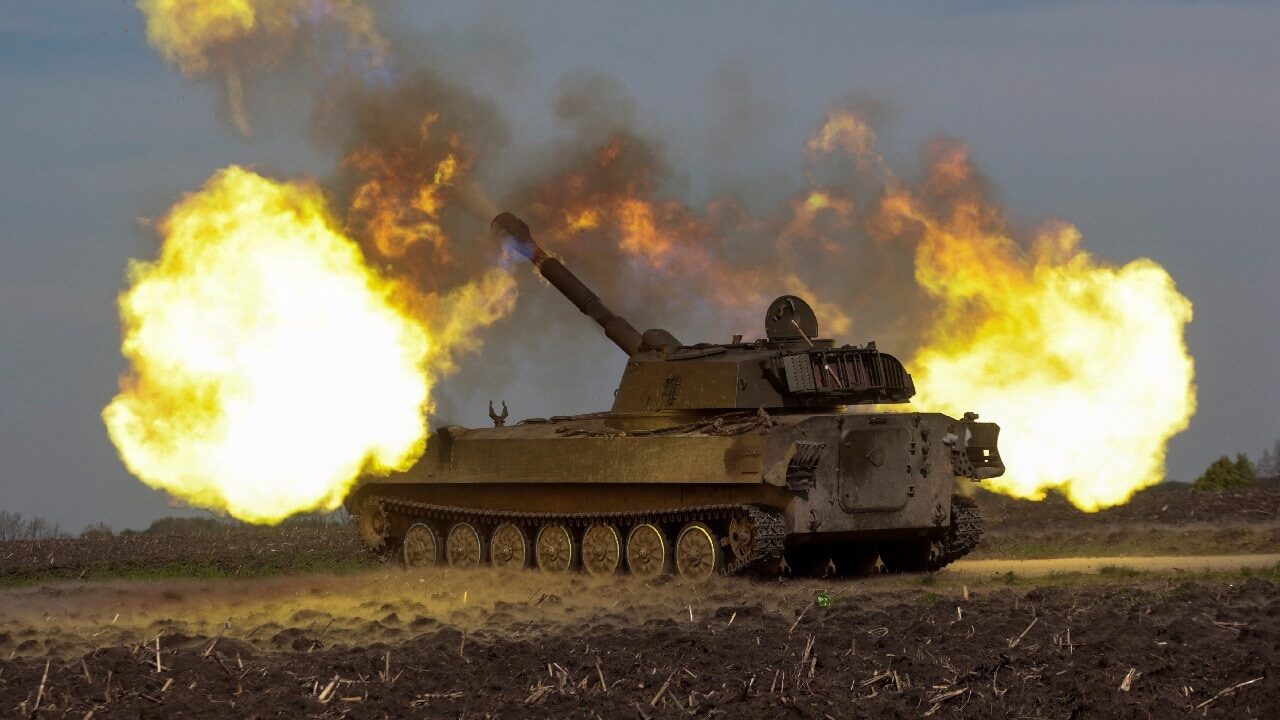Putin Adopts Scorched Earth Approach After Luhansk Success – The two governors of Luhansk and Donetsk provinces have revealed how Russian forces have adopted “scorched-earth” tactics in the east of Ukraine.
On Sunday, Russia successfully took control Lysychansk, the last remaining Ukrainian-controlled city in Luhansk. In the wake of the destruction in the region, which Russian President Vladimir Putin declared “independent” on February 22, the two Ukrainian governors are speaking out about the destruction and indiscriminate shelling of Russian forces in just the last 24 hours.
Ukraine’s presidential office also said that most of the civilian casualties in the last 24 hours occurred in Donetsk. 25 people are believed to have been injured over the last day, and eight civilians have reportedly died.
Luhansk Governor Serhiy Haidai said on Wednesday that Russians have not in fact taken full control of the Luhansk region, but painted a negative picture of the situation overall.
“The Russians have paid a high price, but the Luhansk region is not fully captured by the Russian army,” Haidai explained, adding that some settlements in the region have been overrun by each side of the conflict many times already.
Haidai also offered an insight into the “scorched-earth” tactics being used by the Russians to maintain control of the evening, describing how soldiers are “burning down and destroying everything in their way.”
Donetsk Governor Pavlo Kyrylenko also recognized the severity of recent Russian strikes in a post shared on messaging platform Telegram. Kyrylenko promised that Ukraine would retaliate once the war was over, and that “every crime will be punished.”
The Donetsk governor also urged the remaining 350,000 residents in the region to flee as soon as they can. The move would not only save lives in the region but also help the Ukrainian army better defend the region as Russia focuses on conquering Donetsk Oblast.
Donetsk Is Next for Putin
Donetsk is the other self-styled “people’s republic” in Donbas that the Russian president declared independent in February. At the outbreak of the Russian invasion, Vladimir Putin vowed to send his military into the Donbas to protect civilians and engage in “peacekeeping” operations.
While Russia’s claims of conquering Luhansk Oblast on Sunday are contested by Ukraine, Russian soldiers are certainly behaving as though it’s true. News reports over the last week revealed how a shelling hit an ammunition depot on Tuesday, causing large explosions. Separatist authorities in Donetsk Oblast also said on Wednesday that four civilians had been killed and a further 14 were injured in the space of 24 hours.
Since allegedly capturing Luhansk Oblast, Russian forces have begun to focus more heavily on Donetsk Oblast to the south. Once Russia achieves those two goals, it could give Vladimir Putin the excuse he needs to end military operations and attempt to defend a new land border between Donbas and central Ukraine.
Jack Buckby is a British author, counter-extremism researcher, and journalist based in New York. Reporting on the U.K., Europe, and the U.S., he works to analyze and understand left-wing and right-wing radicalization, and reports on Western governments’ approaches to the pressing issues of today. His books and research papers explore these themes and propose pragmatic solutions to our increasingly polarized society.

